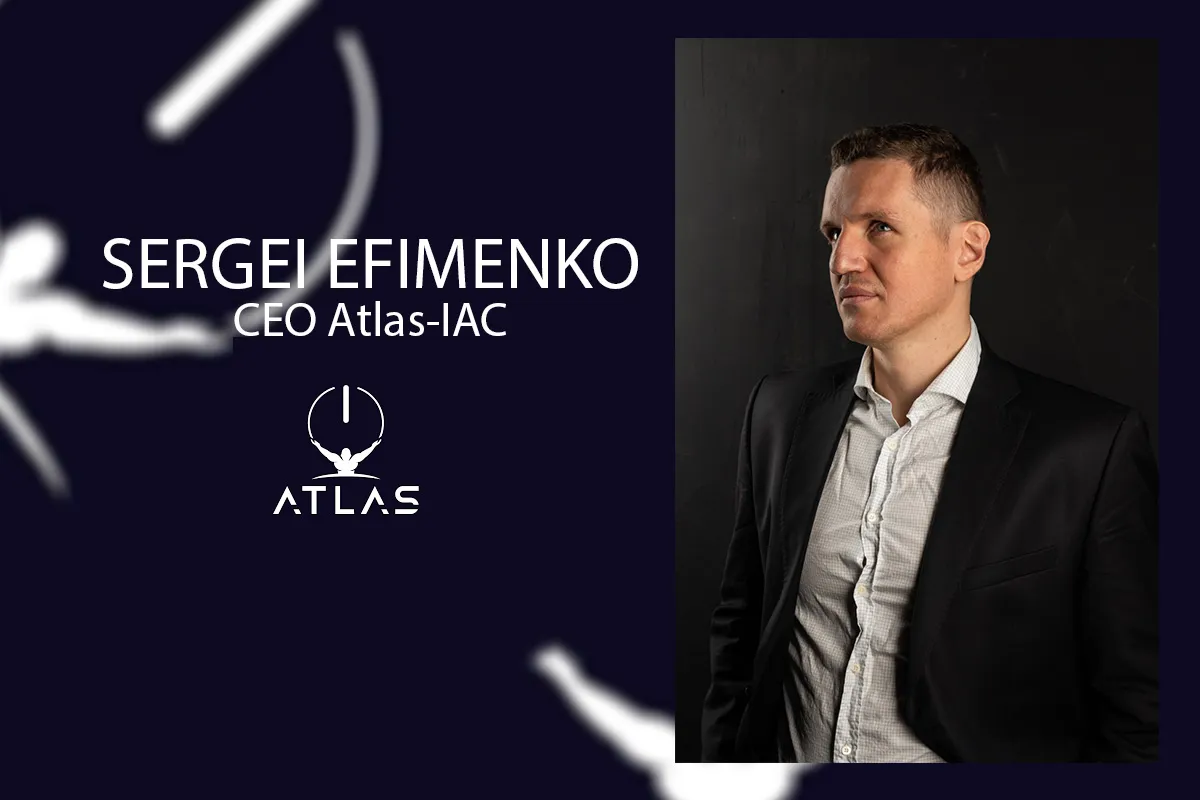
Exclusive Interview: Atlas-IAC – Industry B2B Insight for Brazil & LatAm with Sergei Efimenko, CEO of Atlas IAC
Can you briefly unpack Atlas’ areas of provision and their integration?
Of course. First up, the Atlas Seamless API is a service for existing gambling operators who need to bolster their product range to increase business performance. Whether you need a Sportsbook, Casino, Live Casino, Virtual sports or any other product, with one simple integration we can provide any product into your existing platform. Once integrated, an operator has full control over the look and feel of each product. Each product comes with a multifunctional back office, with an intuitive customisation module and CMS. One seamless API integration allows an operator to take advantage of all of the functionality within the Atlas CMS such as our powerful risk management and CRM tools.
As for our Atlas CRM System, it’s a fully automated marketing solution that allows you to manage all of your marketing and communication activities with your customers from one place. Rules based flows helps create specific personalised communication with each client, identify and trigger client group communication, boost the numbers of a campaign through powerful tools for in-depth marketing analysis, predict a campaign’s performance, and modify a campaign on the fly.
Its key features include real-time data collection and real-time triggered activities; unique content-creating tool for template management across any communication channel; client segmentation tool with myriad fine-grained triggers for client identification and grouping; messaging hub across all popular means of messaging and social channels
And finally, there’s our risk-management tools. These make up a wide-ranging toolbox for fully automated identification and restriction of fraudulent customers, and responsible management of your good customers. You no longer need to employ a huge team of risk analysts to weed out the “sharp” or “at-risk” customers. As an operator, all you need to do is create your own policies and rules, setup and manage categories and criteria in the constructor. The rule-flow powered engine analyses the client’s activities, and categorizes them for you. Core components include in-depth analytics which are mounted on over 200 triggers to manage client groups. Its two operational models are based on AML-scoring or trigger-based scoring and ably backed up by dedicated 24/7 support and training.
How has your business grown in recent years?
The Atlas platform has over 50 operators on-boarded with partners either taking the full solution
(PAM/Sportsbook/Casino) or just our sportsbook, either through a simple iFrame or via our sportsbook API – which has all of the hooks and triggers required to power the sportsbook, but offers an additional level of flexibility to the operator. The modular framework of the Atlas system ensures that sportsbook integrations can be rolled out quickly, with the heavy-lifting undertaken at our end. That can even include underwriting our “no risk sportsbook solution” which has proven very popular of late, particularly amongst casino brands who previously baulked at the supposed volatility of adding a sportsbook to their offerings.
Is there a particular geographic focus of the company?
Emerging markets from LatAm to Africa and Asia. Of the 53 operators we currently have on our books, 28 are in Brazil. So, that fact alone eloquently denotes the opportunity not only in the largest South American nation, but also its wider continent. Importantly, we also have some instructive case studies of brands who get up to $5m+ GGR in less than four months from their start date – and that delivery / integration time takes only two days with Atlas. We even have an example of delivering three websites in just two days in parallel for Brazil! There are even credible whispers that Brazil is now Bet365’s major territory, surpassing the incredibly mature UK market and even China. So, I reckon that’s all you need to know in terms of potential! A majority of our operator partnerships are here as a result. We’re also very interested in Peru, which is “crossing the Ts” of its regulation, alongside some of the existing success stories, like Colombia.
Brazil has legalised but hasn’t regulated yet (due for later this year, with recent changes of incumbent government delaying the process) so its 400+ operators are currently hosted abroad. With regulation, that will naturally quickly change. As with any evolving marketplace, but especially in LatAm, there are three things to keep in mind when approaching any given new territory: the viability of regulatory regime, the commerciality of the tax regime, and potential to take on the local competition. At Atlas, we feel we have profiled the wider market both deeply and effectively.
Looking at Brazil above all, can you share some of that insight and speak more to the specifics there?
The size of the market is bigger than most commentators believe. As I alluded to earlier, Bet365, Entain and even Betano (only launched in 2021) are already each processing $100s of millions in GGR. You need to deliver exceptional, hyper-personalized experiences to your customers and always pay them quickly to engender confidence in your brand. The landscape currently winds around very visible sports sponsorships and mainstream TV-ad packages which are widely available and represent a competitive battlefield. While the most popular payment method is Pix, an instant, frictionless, low-cost mobile payments system developed by the Central Bank of Brazil and launched in late 2020. More broadly, this has led to a boost in all forms of e-commerce, not limited to gambling. However, more specifically, it’s wise to remember that payment costs can be high as gambling-related cash cannot be held in Brazilian bank accounts. The FX spreads on conversion of deposits and withdrawals are high at 30-40% of GGR for many operators. However, this will likely drop to less than 10% post-regulation and will provide some offset to the potential loss of casino.
Which other markets are currently taking your eye in LatAm and South America?
As I mentioned in passing, Peru appeals to us as things stand. Its benign regulatory regime certainly recommends that it should form part of any concerted South American / LatAm regional advance. The market is fragmented which is also beneficial for a highly agile provider like Atlas. Only those with a license (which must be renewed annually) will be permitted to advertise or sponsor sports teams in Peru, and there’s a 12% tax on of all net winnings. Still, it makes Peru one of the more operator-friendly regulations in recent times.
More generally, this continent certainly a rapidly evolving ecosystem where no market positions can be taken for granted, especially if you’re running on outmoded legacy platforms. Emerging markets are very fragmented. Time was when six or seven markets would be an attractive proposition for international presence for a global betting brand. However, what we’ve seen in the modern era is the emergence of lots of national champions (take Caliente with a staggering 75% market share in Mexico) who are not globally-centralised operators. Remember, every global nation has their own form of regulation (bar perhaps Norway, Finland and Austria) with differences ranging from return to player, tax rates, marketing restrictions and market-access restrictions to name just a few. The trend for operators’ management teams partnering with local brands is unsurprising. It’s sometimes easier to retain the expertise and support local heroes. What matters is knowing the customer, meeting them in their respective communication game (i.e. familiarity) with a host of localisation techniques. Atlas’s modular platform is a step ahead which it comes to delivering the requisite versatility and tech. Wherever you stick your pin on the map, these varied requirements across continent, country or region constitute ideal proving grounds for our versatile platform to demonstrate how we keep our international partners ahead of their rivals. Atlas’ efficiencies of cost and scalability will win out over time, no matter where you set your scene.
What are the challenges to making it in South America?
Needless to say, it’s a football-crazy territory, and so football must lead the way across both continents. Almost without exception, you’re selling the the same football-powered product. But it can be complemented and supported by local preferences which can range from mainstream to more localised appetites. Player habits are also very different. Small-stakes-big-win scenarios will prove popular in all emerging markets, of course, but these types of bet are great for the operator on margin, and there’s plenty more juice in the lemon so to speak.
More broadly, as we’ve discussed, rapid-fire access to funds (from deposit to withdrawals) is also paramount to making your brand the preferred wallet of any customer. Customer trust in any operator really hinges on their capacity to payout in timely fashion. Especially because customers heavily favour the aforementioned BetBuilder / parlay model. You have to localise your payment methods in many cases country-by-country in a patchwork assembly of needs. You have to localise on Customer Support, too. For instances, Portuguese fluency alone wouldn’t be a plus-point, you need the regional varieties and dialects. That’s one area where automation can’t currently help you too much. And the User Experience of your site has to be familiar, so you can’t reinvent the wheel for UX if you want to take on the leaders in any given territory.
Elsewhere, I still believe that free-to-play (F2P) jackpot games are the best way to acquire and retain customers in an international landscape that’s running out of regulatory rope in some parts. And as Atlas continues to break into new emerging markets, F2P solutions that track localised player proclivities could prove the reliable differentiator for operators who’ve discovered that narrow-minded bonusing is a race to the bottom.
We saw that at last year’s football World Cup, the most important and most watched football competition in the world – and even more so among Brazil football-mad fanbase! Pixbet, perhaps the largest home-grown operator, executed much better than some of the global behemoths eyeing the Brazilian space simply because they know their end user so intimately. They weren’t alone. Other local sportsbooks and media companies across the soon-to-regulate Brazilian marketplace elevated their acquisition and retention targets via F2P. The North American market has already seen DFS companies fostering loyal and engaged audiences in many U.S. states or Canadian provinces before they open up to sports betting, and a similar pattern is set to ensue in Brazil and other South American countries.










